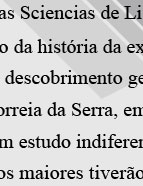

................................
Some foundational authors of this new political history include Wolfgang Mommsen (1930-2004), Bladine Barret-Kriegle (1943-), Jacques Julliard (1933-), and Williem Piete Blockmans (1945-). The German historian initiated a reflection on the return of political history. In Mommsen's view, the task of political history was to contribute to a rational resolution of political and social issues. Barret-Kriegle, later focused on the concept of the "event." Political history transitioned from being concerned with the "why" to the "how." History became a science of effects rather than causes. Julliard, in turn, emphasised the autonomy of the political (as a social fact) within the context of the birth of political sociology, paving the way for authors such as Seymour Martin Lipset (1922-2006), Raymond Aron (1905-1983), Pierre Bourdieu (1930-2002), and Nicos Poulantzas (1936-1979). All their works were produced in a clear convergence between history, sociology, and politics, embodying the emergence of a new field: political science. An example is the work of Juan Linz (1926–2013), who delved into the distinction between authoritarianism and totalitarianism, already present in the work of Hannah Arendt (1906-1975). With this shift, political history expanded its analytical scope from the institutional study of the state to the social study of power, political facts, political systems, institutional structures, regime functioning, political agents, elite actions, mass participation, reforms, and revolutions. Blockmans even aligned new political history with new economic history by incorporating quantitative methods.
The main lines of research of the new political history now included the study of the history of electoral sociology, political parties and party families, the analysis of relationships between politics and society (unions, businessmen, military, and political elites), and the examination of the relationship between politics and collective psychology and mentalities (political sociabilities, symbolism, and public opinion). Other areas undergoing renewal include diplomatic history, the new history of international relations, and a new history of law, to which António Manuel Hespanha (1945-2019) was a significant contributor in Portugal, surpassing more institutionalist perspectives of thinkers such as Marcello Caetano (1906-1980). The same is observed with the emergence of a new military history and in the field of the history of ideas, at the intersection of cultural history and political history. In this latter field, José Sebastião da Silva Dias (1916-1994) was a pioneer, leaving a school between Coimbra and Lisbon.
